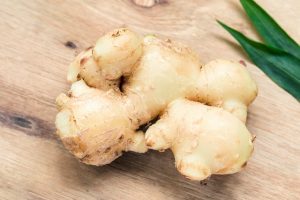Cinnamon has been used to flavor food and traditional medicines for thousands of years. It is a spice obtained from the inner bark of several tree species from the genus “Cinnamomum”.
Cinnamon contains numerous elements like calcium, iron, magnesium, manganese and zinc. It also contains antioxidants that are known to help with memory and lower blood sugar levels. Cinnamon can be taken in capsules or as a tea.
**Please add any further points you have discovered in the comments below.
An article published in the December 2004 issue of the _Journal of Agricultural and Food Chemistry_ found that cinnamon contains antioxidants called polyphenols, which are known to help with memory and lower blood sugar levels. The study showed that cinnamon extracts helped prevent oxidative stress and damage in the brains of rats. Antioxidants in general have been shown to protect against Alzheimer’s disease.
The scientists did a lot of work with cinnamon extracts on rats’ brains before they decided to try it on people. They gave human subjects either water or a placebo and then measured their ability to remember words, based on brain activity patterns recorded by EEG. Based on these results, they concluded that cinnamon extract has potential as a cognitive enhancer, although they suggest further studies be done.
A study published in the May 2003 issue of _Phytotherapy Research_ found that another antioxidant found in cinnamon called cinnamaldehyde might prevent blood sugar levels from rising after a meal. This is important because high blood sugar levels are associated with diabetes, heart disease and obesity. Again, more research needs to be done before we know if this particular compound works or not, but it seems like a good idea to add some cinnamon to your food every once in a while just in case.”
Cinnamon is one of the most common flavoring agents in cooking. It’s used in everything from cinnamon buns to cinnamon toast, but also in chai tea, apple pie, and pumpkin pie. Cinnamon is native to Ceylon (now Sri Lanka) and India, but it’s cultivated all over the world in many tropical climates. The bark of its branches are harvested before they are fully grown and dried out. As a result, its essential oil content is high and takes on a rich aroma.
This oil is used as an antimicrobial agent, meaning it can kill bacteria, fungi, viruses and protozoa. It also contains antioxidants that are known to help with memory and lower blood sugar levels. However it can also prevent blood clotting.
When eaten in large amounts, however, it can cause diarrhea, nausea or vomiting and doesn’t have many other benefits when consumed orally. On the other hand, when consumed topically it can help with skin infections such as ringworm or athlete’s foot and is often found in shampoos.
Studies have shown that cinnamon may help lower blood sugar levels and fight memory loss. And the best part is you can add it to almost anything.
Cinnamon contains cinnamaldehyde, a compound that helps with memory, controlling blood sugar levels and bacterial growth. The spice also contains antioxidants that protect cells from damage and keep the brain functioning optimally.
According to a study published in “Brain Research Bulletin,” cinnamon is best taken in capsules or tablets because cinnamon powder has a thick texture. This makes it hard for the body to absorb the ingredient effectively.
Cinnamon is a spice that’s been used in cooking and as a natural remedy for hundreds of years. Cinnamon has become especially popular as a sweetener alternative to sugar and has been shown to help reduce blood sugar levels. Cinnamon is also an antioxidant, which means it can help prevent certain types of cell damage. Cinnamon may help fight heart disease, cancer, and diabetes and may help with weight loss.
Taken from:www.webmd.com/diet/supplement-guide-cinnamon
Cinnamon is a spice obtained from the inner bark of certain trees. It’s been around for thousands of years and was one of the most popular spices in ancient times. It is still used in many parts of the world today.
The main chemical component of cinnamon is called cinnamaldehyde, which gives it its characteristic flavor. Cinnamaldehyde is also the substance that makes cinnamon oil so potent, and it appears to have a wide range of medicinal benefits.
Cinnamon has powerful anti-clotting properties, which explains why it has been found helpful in treating diabetes and memory problems such as Alzheimer’s and dementia.
It also contains cinnamic acid, which has strong antibacterial properties. This is why some studies have shown that cinnamon can help fight against bacterial infections such as H. pylori, which causes ulcers.
In addition to its antioxidant activity, cinnamon can help lower blood sugar levels by inhibiting insulin resistance, making it particularly effective for diabetics.
A study published in Diabetes Care in 2003 found that supplementing with 1 gram of cinnamon per day reduced fasting blood glucose levels by an average of 29 percent after 40 weeks. The same study found that people who took 1 gram of cinnamon daily lowered their hemoglobin A1c
Cinnamon is a spice obtained from the inner bark of several trees from the genus Cinnamomum. It is used in both savoury and sweet foods.
The extract is also used as a perfume, or as a flavouring in its own right. Cinnamon contains a chemical compound called cinnamaldehyde which has been shown to have antifungal, antimicrobial, antibacterial and antiviral properties.


